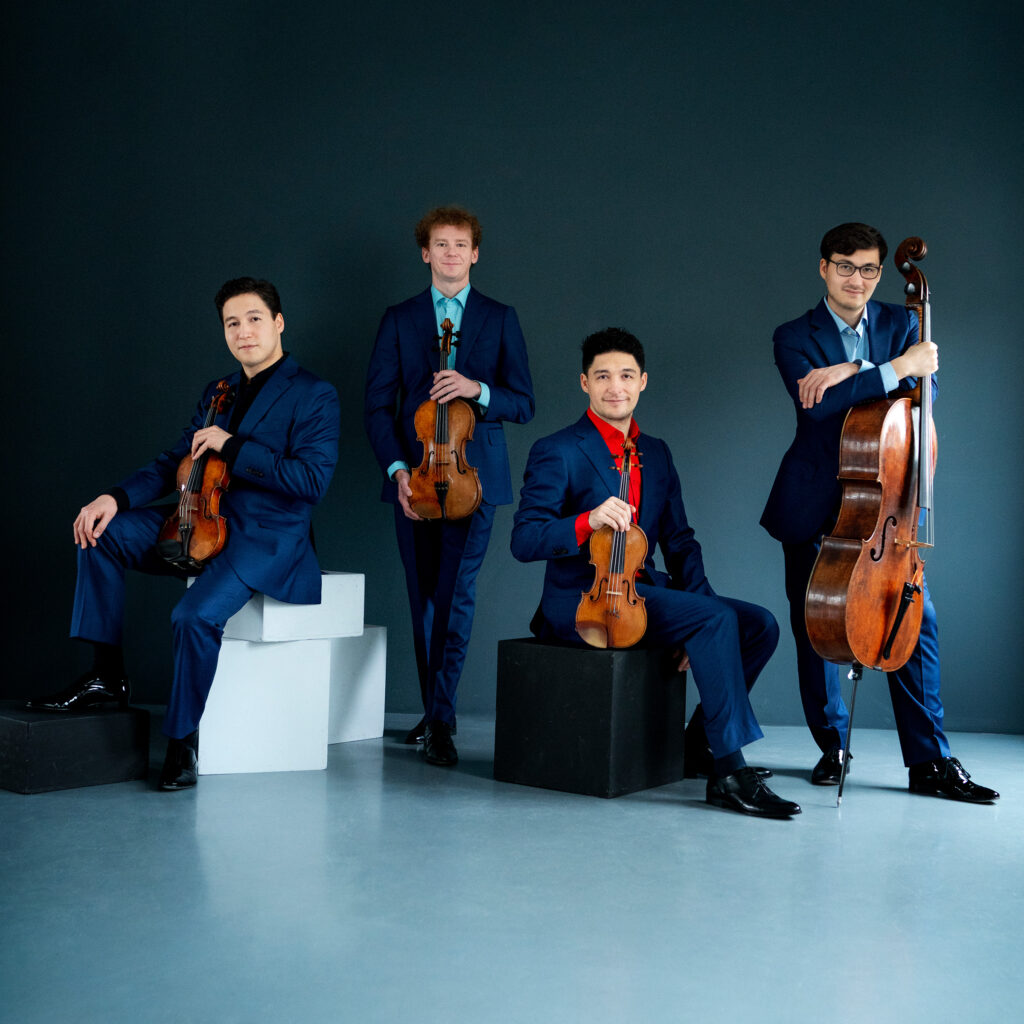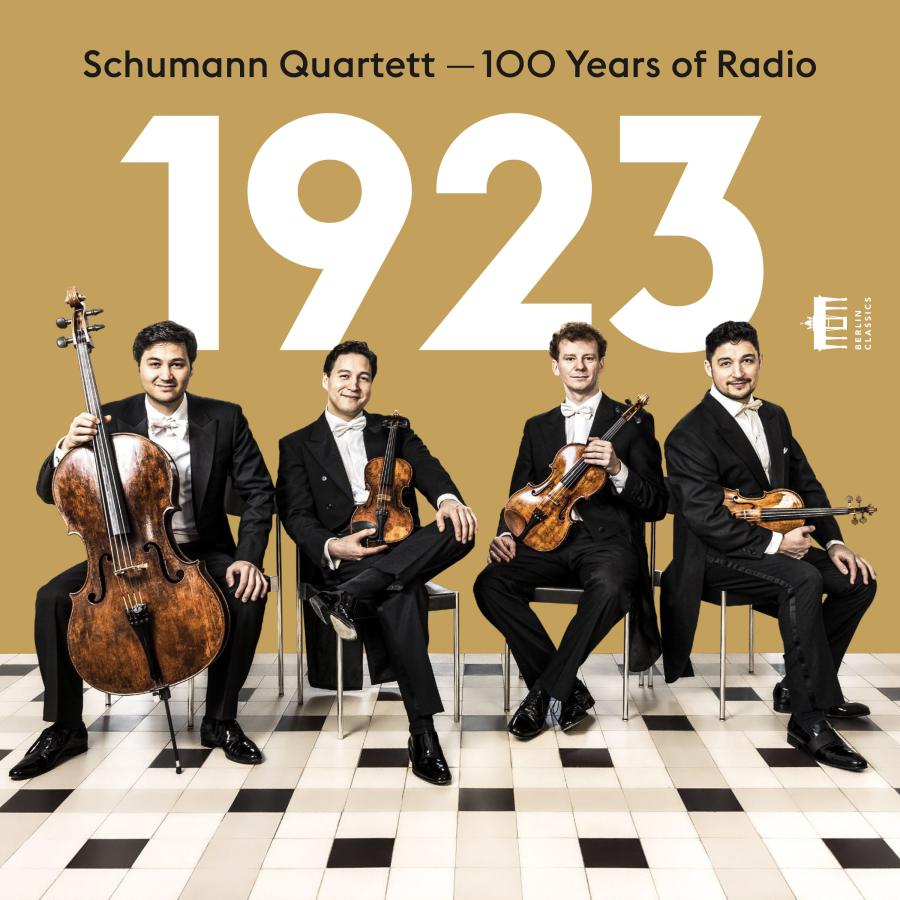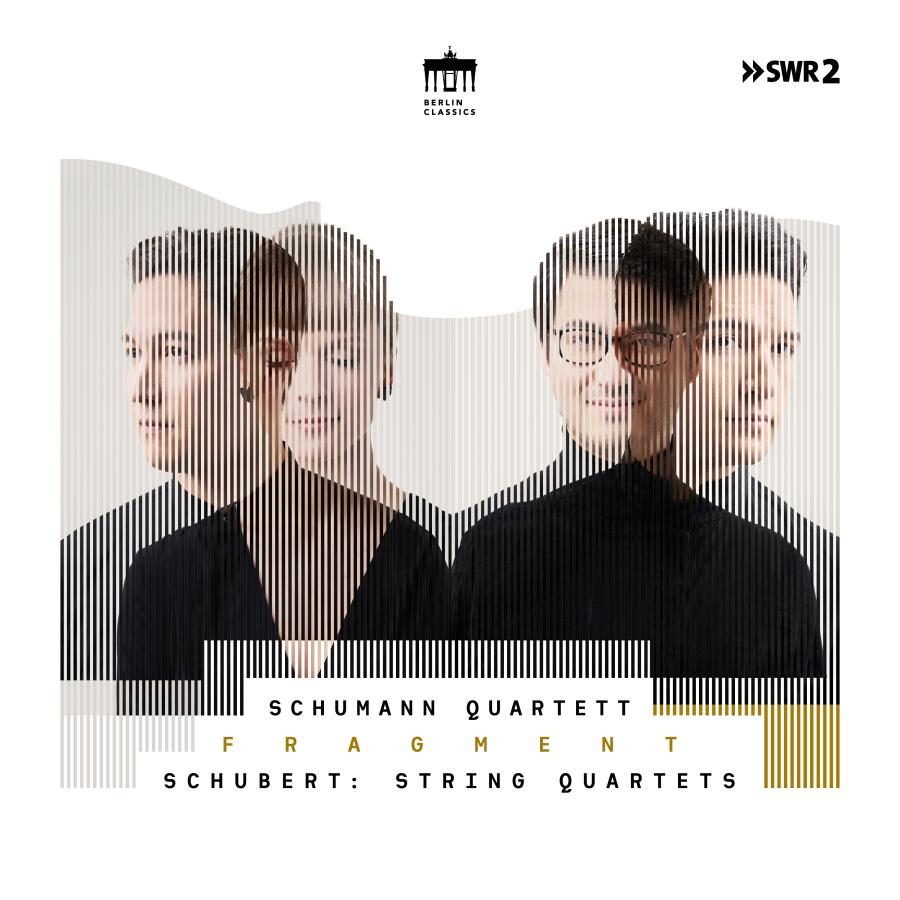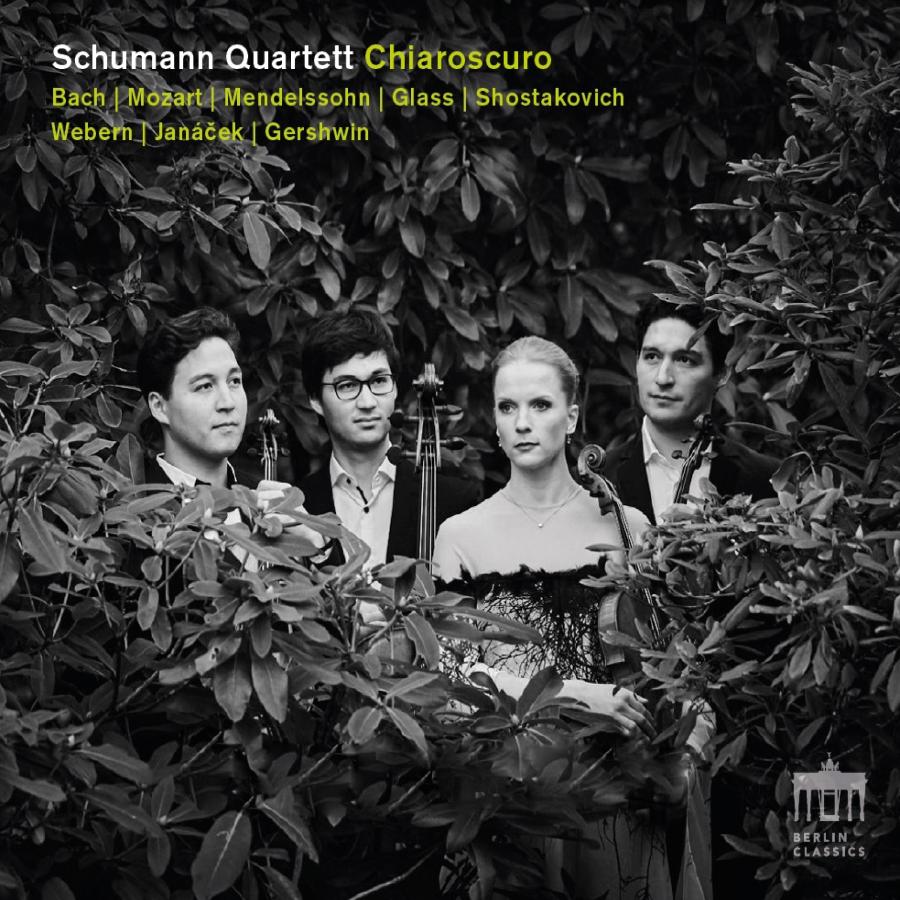BETWEEN ROMANTICISM AND MODERNITY
The Schumann Quartet is releasing its eighth album. “Martin – Ullmann – Fauré” will be published on August 15th by Berlin Classics and is a co-production with Deutschlandfunk Kultur. The string quartet, founded in Cologne in 2007, does not bear its name in honor of the composer Robert Schumann, but is named after the three brothers Erik, Ken, and Mark Schumann, who have been playing music together since childhood. Since 2022, the violist Veit Hertenstein has completed the ensemble. The renowned group has received numerous awards, including first prize at the International String Quartet Competition in Bordeaux. For this latest recording, the four musicians teamed up with the Berlin-based pianist Hinrich Alpers. Together, they focus on works by Frank Martin (1890–1974), Viktor Ullmann (1898–1944), and Gabriel Fauré (1845–1924).
The album opens with Frank Martin’s piano quintet “A ma femme” from 1919, which is one of his early works. Martin dedicated it to his wife. The deeply emotional and profound piece is heavily influenced by Romanticism.
Next is Viktor Ullmann’s String Quartet No. 3, Op. 46, composed in 1943 during his imprisonment in the Theresienstadt concentration camp. The four-movement work creates an intense, often somber atmosphere, reflecting the dramatic circumstances of the composer’s life. Ullmann was a student of Arnold Schönberg, whose influence can be seen in his free tonal expressionist musical language. Ullmann dedicated the quartet to his friend, philosopher Emil Utitz, to whom he also entrusted his compositions created in Theresienstadt—thus ensuring their preservation for future generations.
The album concludes with Gabriel Fauré’s D minor Piano Quintet, Op. 89, his first work in this genre. Fauré dedicated the quintet to the Belgian violinist Eugène Ysaÿe. Its world premiere took place in 1906 in Brussels with the “Ysaÿe Quartet” and Fauré himself at the piano. The creation of the piece spanned many years: Fauré began working on it in 1887, repeatedly set it aside, and finally completed it in 1905. The work marks the transition from Romanticism into the 20th century, bridging the compositions of Frank Martin and Viktor Ullmann.
This album brings together three composers whose life paths and musical styles could hardly be more different. Yet, upon closer listening, intriguing parallels and connections emerge. With captivating chamber music passion, the Schumann Quartet and Hinrich Alpers offer a fascinating glimpse into the transition from late Romanticism to modernity through their joint recording.
Martin - Ullmann - Fauré Schumann Quartett
Artist

Composer



Further information
Genre
Klassik
Musik für Kammerensemble
Publication date
15.08.2025
BETWEEN ROMANTICISM AND MODERNITY
The Schumann Quartet is releasing its eighth album. "Martin – Ullmann – Fauré" will be published on August 15th by Berlin Classics and is a co-production with Deutschlandfunk Kultur. The string quartet, founded in Cologne in 2007, does not bear its name in honor of the composer Robert Schumann, but is named after the three brothers Erik, Ken, and Mark Schumann, who have been playing music together since childhood. Since 2022, the violist Veit Hertenstein has completed the ensemble. The renowned group has received numerous awards, including first prize at the International String Quartet Competition in Bordeaux. For this latest recording, the four musicians teamed up with the Berlin-based pianist Hinrich Alpers. Together, they focus on works by Frank Martin (1890–1974), Viktor Ullmann (1898–1944), and Gabriel Fauré (1845–1924).
The album opens with Frank Martin’s piano quintet "A ma femme" from 1919, which is one of his early works. Martin dedicated it to his wife. The deeply emotional and profound piece is heavily influenced by Romanticism.
Next is Viktor Ullmann’s String Quartet No. 3, Op. 46, composed in 1943 during his imprisonment in the Theresienstadt concentration camp. The four-movement work creates an intense, often somber atmosphere, reflecting the dramatic circumstances of the composer’s life. Ullmann was a student of Arnold Schönberg, whose influence can be seen in his free tonal expressionist musical language. Ullmann dedicated the quartet to his friend, philosopher Emil Utitz, to whom he also entrusted his compositions created in Theresienstadt—thus ensuring their preservation for future generations.
The album concludes with Gabriel Fauré’s D minor Piano Quintet, Op. 89, his first work in this genre. Fauré dedicated the quintet to the Belgian violinist Eugène Ysaÿe. Its world premiere took place in 1906 in Brussels with the "Ysaÿe Quartet" and Fauré himself at the piano. The creation of the piece spanned many years: Fauré began working on it in 1887, repeatedly set it aside, and finally completed it in 1905. The work marks the transition from Romanticism into the 20th century, bridging the compositions of Frank Martin and Viktor Ullmann.
This album brings together three composers whose life paths and musical styles could hardly be more different. Yet, upon closer listening, intriguing parallels and connections emerge. With captivating chamber music passion, the Schumann Quartet and Hinrich Alpers offer a fascinating glimpse into the transition from late Romanticism to modernity through their joint recording.
Tracklist - These are the tracks you will hear on the album
Martin - Ullmann - Fauré
Schumann Quartett
1
I. Andante con Moto
2
II. Tempo di Minuetto
3
III. Adagio ma non Troppo
4
IV. Presto
5
I. Allegro Moderato
6
II. Presto
7
III. Largo
8
IV. Rondo-Finale. Allegro vivace Ritmico
9
I. Molto Moderato
10
II. Adagio
11
III. Allegretto Moderato















